Related Research Articles
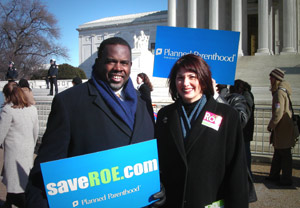
The United States abortion-rights movement is a sociopolitical movement in the United States supporting the view that a woman should have the legal right to an elective abortion, meaning the right to terminate her pregnancy, and is part of a broader global abortion-rights movement. The abortion-rights movement consists of a variety of organizations, with no single centralized decision-making body.

The March for Women's Lives (2004) was a protest demonstration held on April 25, 2004 at the National Mall in Washington, D.C. There was approximately 1.3 million participants. The demonstration was led by seven groups; National Organization for Women, American Civil Liberties Union, Black Women’s Health Imperative, Feminist Majority, NARAL Pro Choice America, National Latina Institute for Reproductive Health, and Planned Parenthood Federation of America. The march was intended to address topics such as abortion rights, reproductive healthcare, women's rights, and others.

Alliance for Justice(AFJ) is a progressive judicial advocacy group in the United States. Founded in 1979 by current president Nan Aron, AFJ monitors federal judicial appointments. AFJ represents a coalition of 100 politically liberal groups that have an interest in the federal judiciary. The Alliance for Justice presents a liberal viewpoint on legal issues.
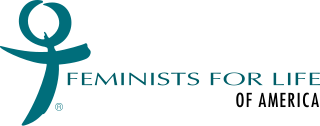
Feminists for Life of America (FFL) is a non-profit, anti-abortion feminist, non-governmental organization (NGO). Established in 1972, and now based in Alexandria, Virginia, the organization describes itself as "shaped by the core feminist values of justice, non-discrimination, and non-violence". FFL publishes a biannual magazine, The American Feminist, and aims to reach young women, college students in particular.
The Religious Coalition for Reproductive Choice (RCRC) is an abortion rights organization founded in 1973 by clergy and lay leaders from mainline denominations and faith traditions to create an interfaith organization following the 1973 U.S. Supreme Court decision legalizing abortion in the U.S. In 1993, the original name - the Religious Coalition for Abortion Rights (RCAR) - was changed to the Religious Coalition for Reproductive Choice.
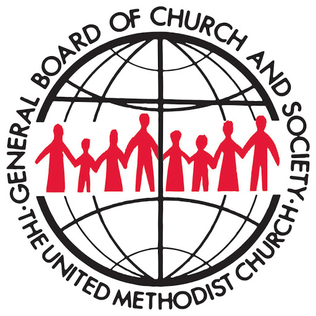
The General Board of Church and Society (GBCS) is a general agency of the United Methodist Church. It is one of four international general program boards of The United Methodist Church as set out the UMC Book of Discipline. The General Board has headquarters on Capitol Hill in Washington, D.C. and at the Interchurch Center in New York City. There are five divisions within the GBCS: Public Witness and Advocacy, Administration, Ministry of Resourcing Congregational Life, United Nations Ministry and Communications.
The American Non-Governmental Organizations Coalition for the International Criminal Court (AMICC) leads the civil society movement for full United States participation in the International Criminal Court.
The Leadership Conference on Civil and Human Rights, formerly called the Leadership Conference on Civil Rights, is an umbrella group of American civil rights interest groups.
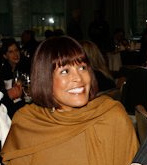
Faye Wattleton is an American abortion rights activist who was the first African American and the youngest president ever elected of Planned Parenthood Federation of America, and the first woman since Margaret Sanger to hold the position. She is best known for her contributions to family planning and reproductive health, as well as the pro-choice movement.
Reproductive justice is "the human right to maintain personal bodily autonomy, have children, not have children, and parent the children we have in safe and sustainable communities," according to SisterSong Women of Color Reproductive Justice Collective, the first organization founded to build a reproductive justice movement. In 1997, 16 women-of-color-led organizations representing four communities of color – Native American, Latin American, African American, and Asian American – then launched the nonprofit SisterSong Women of Color Reproductive Justice Collective to build a national reproductive justice movement. Additional organizations began to form or reorganize themselves as reproductive justice organizations starting in the early 2000s.
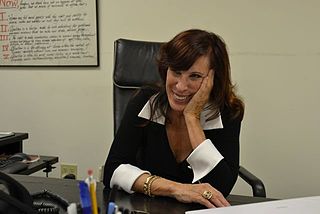
Merle Hoffman is an American journalist, activist, and healthcare pioneer.

Women's Media Center (WMC) is a 501(c)(3) nonprofit women's organization in the United States founded in 2005 by writers and activists Jane Fonda, Robin Morgan, and Gloria Steinem. Led by President Julie Burton, WMC's work includes advocacy campaigns, giving out awards, media and leadership training, and the creation of original content.

Ipas is an international, non-governmental organization that increases access to safe abortions and contraception. To this end the organization informs women how to obtain safe and legal abortions and trains relevant partners in Africa, Asia, and Latin America on how to provide and advocate for these.

Founded in 1987, Lifewatch, Taskforce of United Methodists on Abortion and Sexuality (TUMAS) is a 501 (c)(3) organization that serves as the unofficial anti-abortion group within the United Methodist Church. The organization publishes a quarterly newsletter titled Lifewatch and is a member of the National Pro-Life Religious Council. The organization also frequently holds seminars to address within Methodist Christianity the theological, moral, and social aspects of defending women and their unborn children from abortion. It is committed to reversing the Roe v. Wade decision "by first providing theological leadership within the church, which will set an example that political, legal and cultural forces will follow."
Feminism in Thailand is perpetuated by many of the same traditional feminist theory foundations, though Thai feminism is facilitated through a medium of social movement activist groups within Thailand's illiberal democracy. The Thai State claims to function as a civil society with an intersectionality between gender inequality and activism in its political spheres.
The United Methodist Women (UMW) is the only official organization for women within the United Methodist Church (UMC). Founded in 1869, it is "the largest denominational faith organization for women with approximately 800,000 members". The UMW offers all Methodist women opportunities for spiritual growth, leadership development, transformative education and service and advocacy. Its current advocacy priorities are climate justice, economic inequality, maternal and child health, and ending criminalization of communities of color and mass incarceration.

Loretta J. Ross is an African American academic, feminist, and activist who advocates for reproductive justice, especially among women of color. As an activist, Ross has written on reproductive justice activism and the history of African American women.
The SisterSong Women of Color Reproductive Justice Collective, also known as SisterSong, is a national activist organization dedicated to reproductive justice for women of color. The non-profit defines reproductive justice as the human right to maintain personal bodily autonomy, have children, not have children, and parent the children we have in safe and sustainable communities.
References
- ↑ Whitaker, Lois Duke (2010). "Overview: History of Women's Public Leadership". In O'Connor, Karen (ed.). Gender and Women's Leadership: A Reference Handbook. SAGE Publications, Inc. p. 68. ISBN 9781412960830.
- ↑ Sive, Rebecca (2013). Every Day is Election Day: A Woman's Guide to Winning Any Office, From the PTA to the White House . Chicago Review Press. pp. 206. ISBN 9781613746622.
national council of women's organizations.
- ↑ "Susan Scanlan, President". WREI Staff. Retrieved 21 December 2015.
- ↑ "Shireen Mitchell". Women's Media Center. Archived from the original on 31 October 2015. Retrieved 21 December 2015.